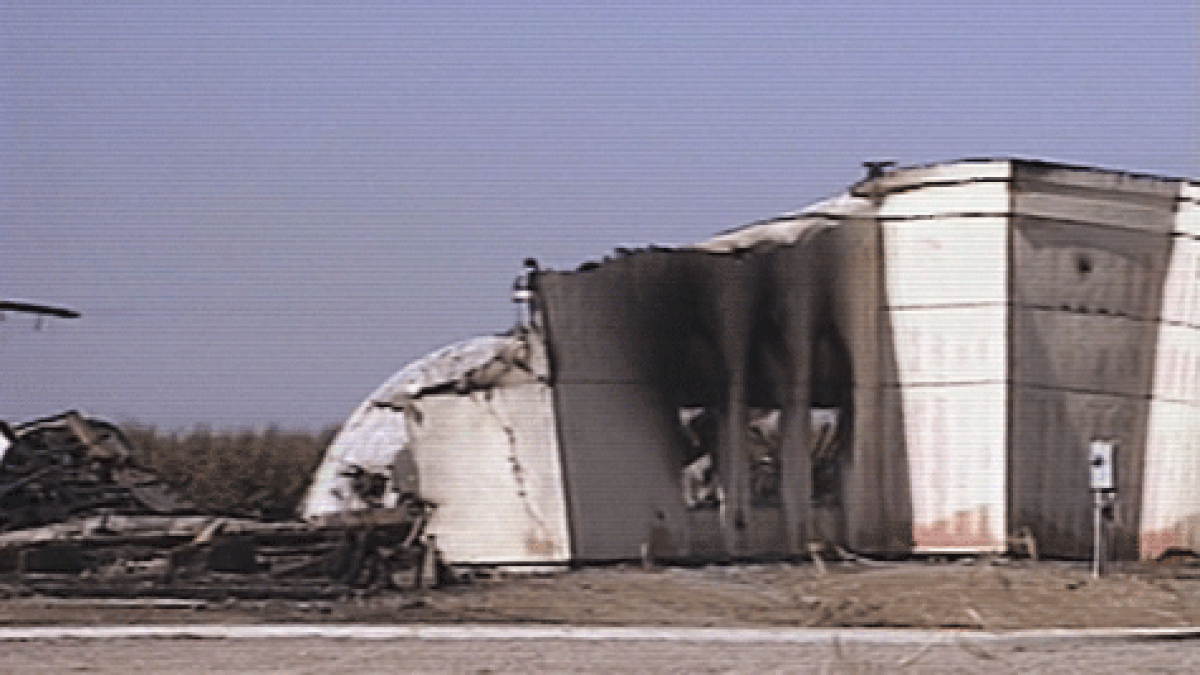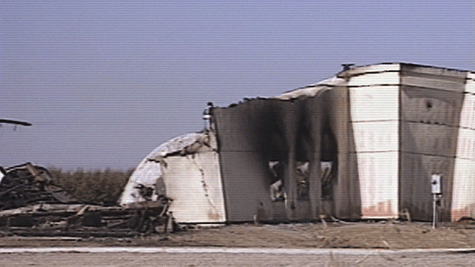Hate crimes against Muslims occur with unfortunate frequency these days, but in 1994 when the first American mosque was destroyed by an act of arson in Yuba City, Calif., they were a rarity. In his new documentary, An American Mosque, director David Washburn chronicles the building of that mosque, its destruction, and the community’s response to the crime.
Washburn initially brought the film to festivals in 2012, but is showing a longer version of the documentary at community screenings this year, including at the Islamic Cultural Center of Northern California (ICCNC) this Saturday.
The depiction of the Yuba City Muslim American farming community shown in the film is a departure from mainstream media portrayals of Muslims, which often focus on their foreignness. For example, Khalid Saeed, who donated five acres of his farmland for the mosque, is a longtime farmer whose family immigrated to California from Pakistan in the 1950s. “It’s a very sympathetic and important portrayal of a really interesting California community,” said Raeshma Razvi, the director of the arts and culture program at ICCNC who organized the screening.
[jump]
The mosque, built almost entirely by farm laborers, was in the final stages of construction and was already being used for worship when it was set on fire and burned to the ground on the night of August 31, 1994. Officials determined that the cause of the fire was arson and initially had viable suspects, but the investigation was eventually closed due to a lack of evidence.
Washburn first learned about the arson while working on an oral history project with the Sikh community in Yuba City. He was surprised by how little publicity the incident had received, particularly in contrast to a hate crime against the Jewish community in Sacramento. In 1999, three synagogues in the city were firebombed in a single night and the library of B’nai Israel, the synagogue Washburn had attended as a child, was completely destroyed. After the attack, the entire community spoke out against the hate crime. “The press coverage was extensive,” he said. “There was a huge rally at the community hall with 5,000 people.”
The differing amounts of attention the two crimes received compelled Washburn to shed more light on the Yuba City incident. “This story had zero publicity outside the regional and Muslim press,” he said. “I felt like what happened in Sacramento got great coverage and it was a beautiful moment and maybe we could reproduce that in Yuba City and give the story the telling that it deserved.”
While the film depicts a community devastated by the loss of their house of worship, its message is ultimately hopeful. Following the arson, community members of different faiths reached out to offer their condolences and Christian and Mormon churches and Sikh community members sent funds. The mosque was ultimately rebuilt and completed in 2000.
Razvi was also struck by the hopefulness of the film. “I hadn’t expected the deep feeling of empathy that the film ended with, focusing on the outpouring of community support,” she said.
Recognizing the importance of interfaith dialogue about religious intolerance, Razvi reached out to Wesleyan professor Peter Gottschalk, author of the book, American Heretics: Catholics, Jews, Muslims, and the History of Religious Intolerance, and Reverend Michael Yoshii from Buena Vista United Methodist Church in Alameda to lead a discussion with Washburn following the screening.
Razvi is looking forward to the event as an opportunity for communities of different faiths to connect in multiple ways. “We’re connected through not just a history of discrimination, but through a very diverse, strong American culture,” she said.
The screening and discussion will take place Saturday, February 22 from 5:30-7:30 p.m. at the Islamic Cultural Center of Northern California at 1433 Madison St., Oakland.












